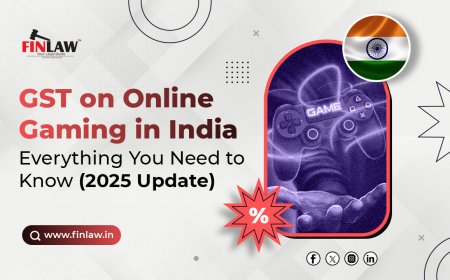Are Online Casinos Legal in India? Understanding the Legal Landscape
Learn if online casinos and online gambling are legal in India. Explore central and state laws, taxation rules, and regulatory challenges in 2025.

The legality of online casinos in India is a complex and evolving issue, influenced by a combination of central and state laws. Understanding this legal landscape is essential for both operators and players to navigate the online gambling environment safely and legally.
Is Online Casino Legal in India? Central Legislation Governing Gambling
The primary central legislation concerning gambling in India is the Public Gambling Act of 1867. This archaic law prohibits the operation of public gambling houses and the visiting of such establishments. However, the Act does not explicitly address online gambling, given its enactment long before the digital age. This omission has led to ambiguities regarding the applicability of the Act to online casinos.
Additionally, the Information Technology Act of 2000 plays a role in regulating online activities. Section 67 of the Act prohibits the publication or transmission of obscene material in electronic form, which can be interpreted to include certain gambling activities. However, the Act does not provide clear guidelines specifically concerning online gambling, further contributing to the legal grey area.
State-Level Regulations: Is Online Gambling Legal in India in All States?
India's Constitution grants individual states the authority to formulate their own laws regarding gambling. As a result, the legality of online casinos varies across the country:
-
Goa, Daman, and Sikkim: These states have legalized certain forms of gambling and have operational casinos. Sikkim, in particular, has been proactive in attempting to regulate online gambling by issuing licenses for online betting platforms.
-
Telangana and Andhra Pradesh: In contrast, these states have imposed explicit bans on online gambling. In 2020, both states amended their laws to prohibit all forms of online betting and gambling, with violators facing penalties including fines and imprisonment.
-
Tamil Nadu: The state has experienced fluctuations in its stance on online gambling. In 2020, Tamil Nadu imposed a ban on online gaming, betting, and gambling. However, the legal status has seen changes due to subsequent legislative and judicial actions, reflecting the dynamic nature of gambling laws in the state.
Games of Skill vs. Games of Chance: Key to Understanding If Online Gambling is Legal in India
A significant distinction in Indian gambling law is between 'games of skill' and 'games of chance'. Games that are predominantly based on skill are generally exempt from gambling prohibitions. The Supreme Court of India has ruled that games like rummy involve a substantial degree of skill and therefore are not considered gambling. This distinction has been pivotal for online platforms offering games like rummy and fantasy sports, allowing them to operate legally in several states.
Offshore Online Casinos
Due to the ambiguous legal framework, many Indian players turn to offshore online casinos. These platforms operate outside Indian jurisdiction but cater to Indian customers by accepting Indian Rupees and offering services tailored to the Indian market. While there is no specific prohibition against Indian players accessing these sites, the lack of regulation means that players may not have legal recourse in case of disputes.
Online Gambling Taxation
Players engaging in online gambling in India are subject to taxation on their winnings. Under the Income Tax Act, 1961, winnings from gambling, betting, and lotteries are taxed at a flat rate of 30% (excluding cess and surcharge). This taxation applies regardless of whether the gambling activity is conducted online or offline. Players must declare their winnings and pay the applicable taxes to avoid legal complications.
Recent Developments and Regulatory Challenges
The rapid growth of the online gambling industry in India has prompted increased scrutiny from regulatory bodies. In November 2024, the Competition Commission of India (CCI) initiated an investigation into Google's policies regarding real-money gaming apps. The probe was launched following a complaint that Google's Play Store policies were discriminatory, allowing certain real-money games like fantasy sports and rummy while excluding others. This investigation underscores the ongoing challenges and debates surrounding the regulation of online gambling platforms in India.
Meanwhile, the All India Gaming Federation (AIGF) has been actively advocating for a uniform regulatory framework for online gaming. The organization argues that a standardized approach would ensure better compliance, protect consumers, and boost the growth of the industry.
Prospects for a Uniform Gambling Law
Given the fragmented legal landscape, there have been calls for the central government to introduce a uniform law regulating online gambling across the country. Proponents of such a law argue that it would:
-
Ensure Consumer Protection: A central law could establish clear guidelines for operators, ensuring fair play and safeguarding player interests.
-
Boost Revenue: Legalizing and regulating online casinos could generate significant tax revenue for the government.
-
Promote Responsible Gambling: A regulated environment could promote responsible gambling practices and provide support for individuals struggling with gambling addiction.
However, opponents of legalization cite concerns about the potential for increased gambling addiction and its social repercussions. Striking a balance between regulation and prohibition remains a key challenge for policymakers.
How Indian Players Can Stay Safe
Given the current legal ambiguities, players interested in online gambling should take certain precautions:
-
Choose Reputable Platforms: Opt for well-known offshore platforms with a good track record and proper licensing.
-
Understand the Legal Risks: Be aware of the laws in your state and the potential risks involved in participating in online gambling.
-
Declare Winnings: Ensure that you declare any winnings and pay the applicable taxes to remain compliant with tax laws.
-
Set Limits: Practice responsible gambling by setting time and monetary limits for yourself.
Conclusion
The legal status of online casinos in India remains complex and varies significantly across different states. While central laws provide a broad framework, state-specific regulations play a crucial role in determining the legality of online gambling activities. As the industry continues to evolve, staying informed about the latest legal developments is essential for both operators and players to ensure compliance and protect their interests.
So, is online casino legal in India? The answer depends on where you are located and the specific laws of that state. The future of online gambling in India hinges on the government's ability to strike a balance between regulation and prohibition. A uniform legal framework could provide much-needed clarity and boost the growth of the industry while ensuring consumer protection and responsible gambling practices.
What's Your Reaction?



















